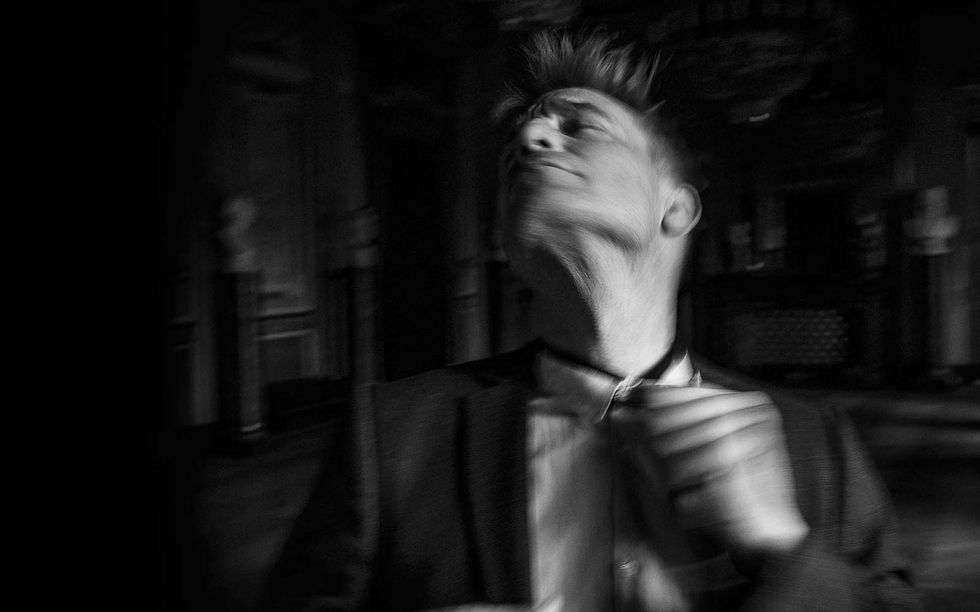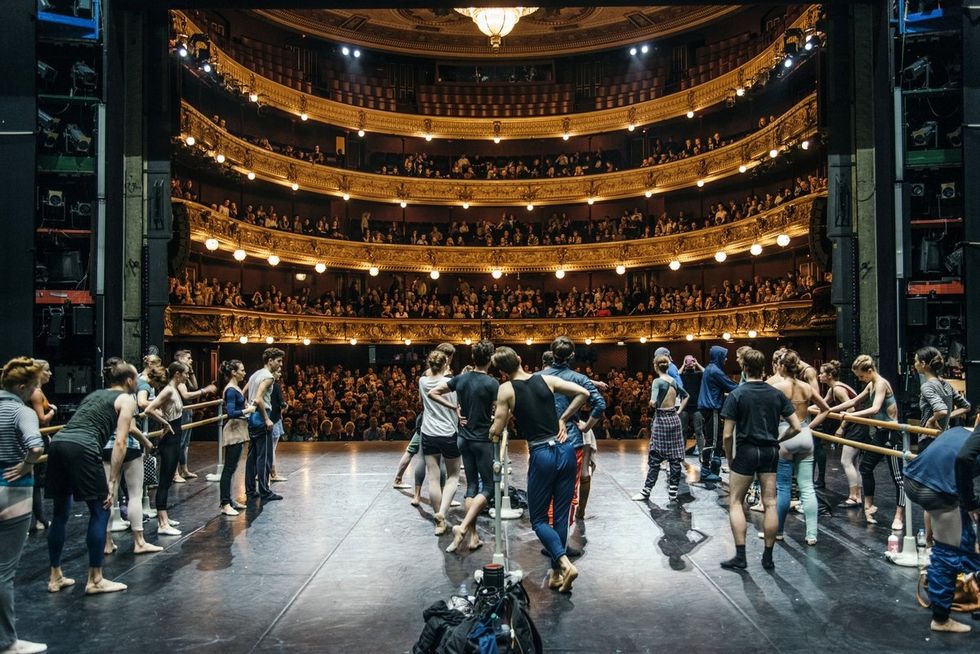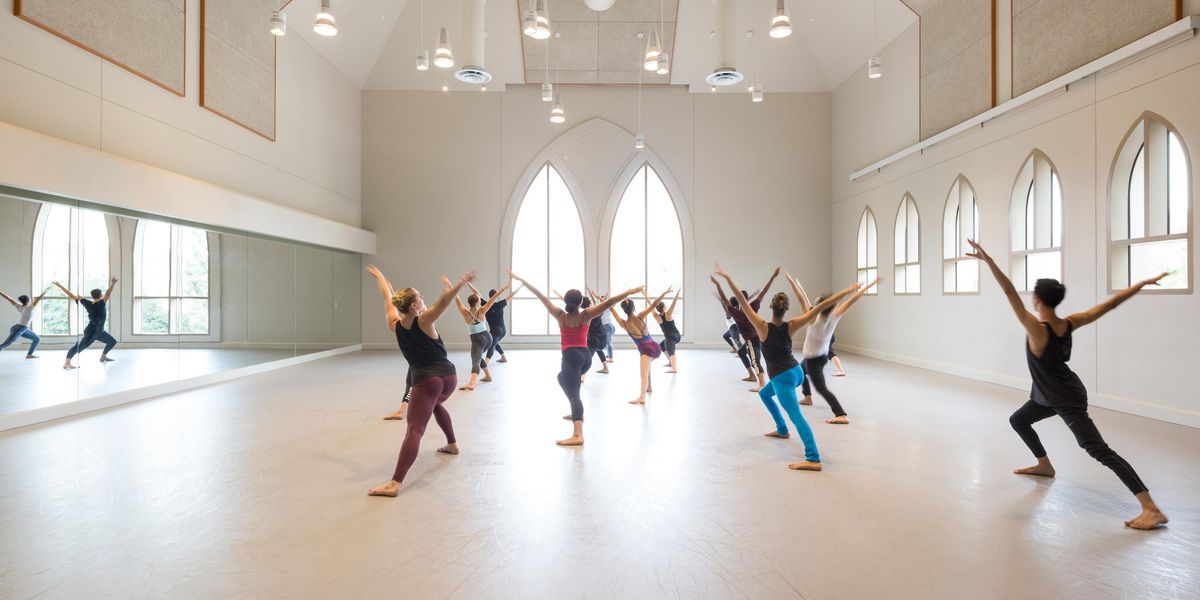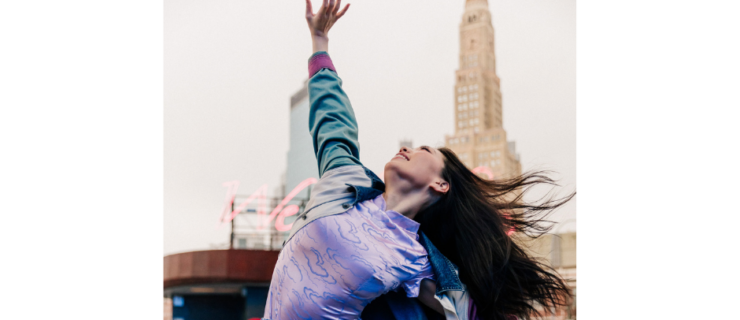Nikolaj Hübbe on American Chutzpah and The Loneliness of Being a Director
Nikolaj Hübbe has a confession: “I love dancers, I love dancers,” he tells me. “I could eat them for breakfast. With the cornflakes, with milk on them.”
It’s a few hours before his dancers perform at Jacob’s Pillow, and he has the barely-contained excitement of a Labrador Retriever about to go on a walk.
Although the Royal Danish Ballet artistic director speaks perfect English after spending 17 years as a principal with New York City Ballet, he gets so carried away talking about his company that his sentences sometimes turn into sound effects. “Bum bum bum bum bum,” is how he describes how often he wants his dancers to take Bournonville classes. “We’re gonna grrrrghhh get the men in there, too,” he says of his plan to re-focus on the development of his male dancers.
Last week, Hübbe brought a handpicked group of principals, soloists and corps members to the Pillow, “a new generation of dancers that I can sort of say are ‘my crop,'” he says. To no one’s surprise, this crop shone particularly bright in the Bournonville selections on the program, with their sprightly jumps and delightfully personable performances.
I used the rare U.S. visit as an excuse to pick Hübbe’s brain on his 10-year tenure as artistic director and get an idea of where he wants to see the company go next.
What American Dancers Bring To Danish Ballet
Out of the 11 dancers Hübbe brought to the Pillow, three were American: principals Amy Watson, J’Aime Crandall and Holly Jean Dorger. Back in Copenhagen, 18 current RDB dancers are from the U.S.
Hübbe feels Americans bring “energy, morale, ethics, and a bit of pizazz, which is suitable for our country, where everything is quite traditional,” he says. “It’s nice to have that American chutzpah.”
What He’s Learned in His 10 Years as Artistic Director
When asked to name the biggest lessons he’s learned in his decade leading the company, Hübbe says, “Communicate and listen. And listen and communicate.” Then he lets out a sheepish laugh.
“Also,” he adds, “trust your dancers. Give them responsibility. They’re grown-up people, they can handle it. Don’t treat them like kids.”
How Danish Company Culture is Different
Hübbe once told Roslyn Sulcas of The New York Times that he left RDB in 1992 because he felt the civil servant system there bred complacency. Today, although the same system is in place, Hübbe feels the company culture has changed.
“People are taken care of, but you also have to do your part,” he says. “When I grew up, Denmark was very hippy dippy and extremely affluent, and it was, ‘I want, I want, I want.’ Today, it’s, ‘Yes, you want, but what are you gonna give then?’ ”
He believes that the Americans he’s hired have contributed to a shift within RDB: “Americans have brought the idea that this is a vocation. And that has been a good combination for the company: there’s personal ambition, but most of the time it’s about the group before the ‘me.’ ”
One Way The Company Is Pushing The Envelope: Hübberiet

Hübbe hosts evening-length programs that invite outsiders to perform for a show centered around a timely topic. Photo via kglteater.dk
Despite being a 250-year-old company so closely associated with the lovely but quaint Bournonville tradition, RDB isn’t stuck in the past.
One of the most intriguing programs it’s experimented with recently is Hübberiet: an evening centered around a timely topic—refugees, fear, men and women—where the company invites musicians, actors, or maybe a politician for their take on the topic, and, of course, weaves in relevant dance pieces, all hosted by Hübbe himself.
“It’s like when you have a picture from Picasso’s blue period, and a curator can put it into a different context where all of a sudden you see the work with a whole new kind of perception. How can we put another spotlight on this art form that will bring people to the theater and provoke something we didn’t see before?”
Why He’s Decided To Add Weekly Bournonville-Based Company Classes

The Royal Danish Ballet taking class onstage. Photo via Twitter
Although RDB’s school has always given students solid training in the Bournonville technique, company members have only had Bounonville-based classes off and on in recent years. Hübbe recently decided that, starting next season, the company will have them once a week.
“I feel that I have to get back to more jumping, especially for the boys,” he explains. He admits that he’s focused mostly on raising the standard of the women over the past decade. “You almost take the Danish men for granted. But you have to cultivate them and keep pushing them, too.” He also says that since he’s hired so many foreign dancers, he wants to “reiterate this backbone” of the company.
But that doesn’t mean the dancers will be taking a traditional Bournonville barre. “The barre, oyoyoy,” he says. “It’s 15 minutes long. Jeté comes before tendu, and in the middle there’s grand battement.” Hübbe explains that Bournonville’s classes were assembled by his students, and he questions whether some of those students didn’t take artistic license with the combinations. “Some of them are Bounonville, absolutely, but some of them, I don’t know.”
What He Misses About Being a Dancer
“Being one of the dancers, the clan, the tribe—that I can miss. Being a director is great, but a lot of things you do alone. You are removed. They have to rehearse and take care of their feet and their pirouettes and this and that and you help, but you know it’s theirs. That thing of socially, just like, having a lunch and, you know, shooting the shit. And it’s not family, it’s a tribe. It’s like dogs in a pack. School of fish. Whatever you call it. That thing. That I can miss. Because that’s how you grew up, you know? Not like actors or singers; they grow up very much individual. We grow up in the studio, standing next to one another, bum bum bum bum bum. It gives you a sense of belonging. That camaraderie I can miss.”





